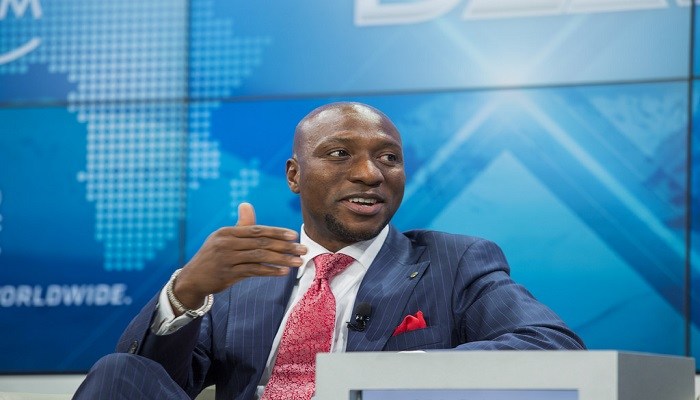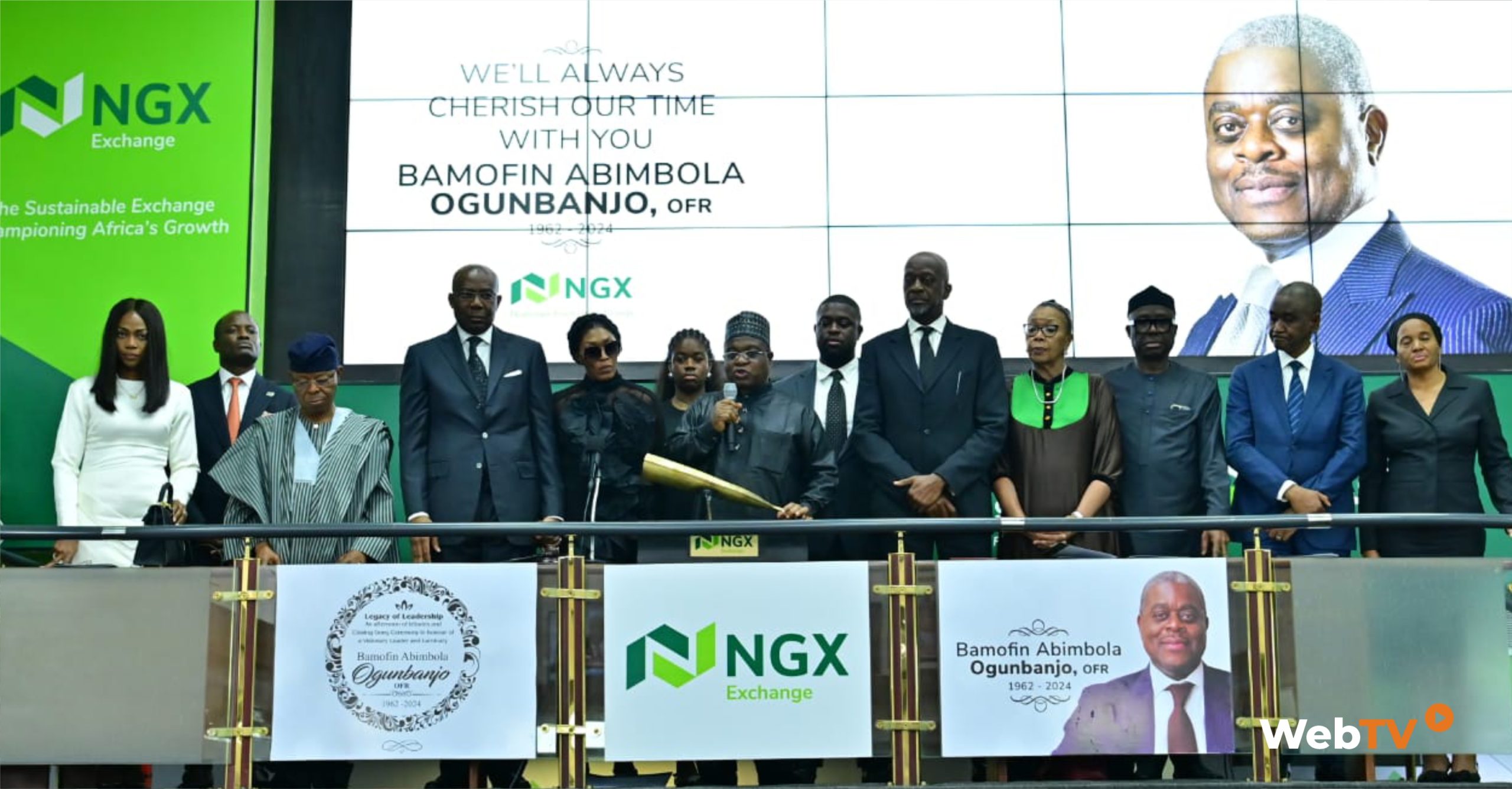NEWS
NSIA Sustains Growth with Interests, Infrastructure, Mgt Fees

The key growth drivers for the Nigeria Sovereign Investment Authority (NSIA) are interest income, infrastructure business revenue, and fiduciary activities’ management fees, which went up by 34.5 percent, amounting to N15.7 billion year-on-year.
Managing Director/Chief Executive Officer, NSIA, Aminu Umar-Sadiq made the disclosure in Abuja on Thursday, when he tabled the 2022 Audited Financial Statements to media.
According to Umar-Sadiq, the NSIA attracted $500m foreign direct investments into Nigeria and invested $500m in domestic infrastructure.
In summary, the NSIA grew its net assets from N919.73 billion in 2021, to N1.02 trillion in 2022, which translates to 10.5 percent.
He said, “It is however noteworthy that earnings from interest income, infrastructure business revenue, and fiduciary activities’ management fees increased by 34.5 percent (N15.7bn) year on year.
“These returns provided the needed diversification of the Group’s revenue base and cushioned the effect of the decline in the earnings from the market-facing assets.”
On the progress made under his administration, Umar-Sadiq pointed out that, “We recorded 10th straight year of continuous positive earnings despite volatility and headwinds across global markets; Net asset grew by 10.5 percent to N1.02tn in 2022 (2021: N919.73bn).’’
Stating that the NSIA developed or co-developed over 10 institutions and platforms to improve the financial market ecosystem.
Umar-Sadiq affirmed that the Authority also invested in over 80 percent of locally owned and run private equity funds.
He explained that the NSIA’s total comprehensive income closed at N96.96bn for 2022, a decline of 34.0 percent relative to N147. 98bn in 2021.
The MD declared that the sovereign wealth manager recorded the 10th straight year of continuous positive earnings despite volatility and headwinds across global markets.
According to him, the 2022 financial statements indicate a continuity of the performance trajectory from the pioneer team to the current one, assuring the nation of continued high-quality and steady leadership for the Authority.
The NSIA is an investment institution of the federation set up to manage funds in excess of budgeted hydrocarbon revenues and as part of its mandate operates the Stabilization Fund, the Future Generations Fund, and the Nigeria Infrastructure Fund.
The 2022 Annual Returns are the first under the new management of the Authority, led by Umar-Sadiq.
NEWS
Moghalu Prescribes Good Governance As Panacea To Ethnic Agitation

The President of the African School of Governance, Kingsley Chiedu Moghalu has admonished state actors against resorting to brutal force in the bid to muscle out separatist agitators.
In the aftermath of Mazi Simon Ekpa, the Finland based Biafran nationalist agitator being caught in legal web and the Nigerian government moving swiftly to seek his repatriation, the former deputy governor of the Central Bank of Nigeria (CBN) has cautioned that ‘We either fix our problems, or our problems will eventually “fix” us. No alternative to a renegotiated union.’
ALSO READ: Finnish Police Arrest Simon Ekpa Over Terror-Related Allegations
The political economist, while expressing his hope in Nigeria, made it clear that “hope is not a strategy”.
He bared his mind in a series of posts on his verified handle on micro-blogging site, X on Friday.
Moghalu wrote, “Despite sustained contemporary difficulties, I am hopeful about Nigeria. But hope is not a strategy. We need to improve state capacity for effective governance.
“We either fix our problems, or our problems will eventually “fix” us. No alternative to a renegotiated union.
“We must learn to be honest with ourselves and address the root causes of our problems. Why ignore them, when the problem is actually quite solvable? The problem with continuing with this approach is that when the danger crystallizes, those who thought they were benefiting from
NEWS
N1.7trn Loan: Atiku Blames NASS For Worsening Nigeria’s Debt Burden
Former Vice President, Atiku Abubakar has criticized the federal government’s plan to secure an additional N1.7 trillion loan through Eurobonds to cover a shortfall in the 2024 budget, describing the borrowing as unsustainable and harmful to Nigeria’s economy.
In a statement shared on Thursday via his X (formerly Twitter) handle, Atiku accused the Bola Tinubu-led administration of burdening Nigerians with debt while failing to provide clear answers about the country’s fiscal challenges.
READ ALSO: CSR: Dangote Cement Fuels Education With Support Projects At Lagos Schools
He also faulted the National Assembly for enabling what he called a “voracious appetite” for loans.
The former Peoples Democratic Party (PDP) presidential candidate expressed alarm over a recent World Bank report ranking Nigeria as the third most indebted country to the International Development Association (IDA), calling the development troubling.
“The recent report released by the World Bank, showing Nigeria as the third most indebted country to the International Development Association (IDA), is very concerning,” Atiku stated.
He raised further concerns about the government’s decision to benchmark the proposed loan at an exchange rate of 1 USD to N800, despite the Central Bank of Nigeria’s official rate being over N1,600.
“What makes this particular loan proposal even more concerning is that it is benchmarked at the exchange rate of 1 USD to N800, whereas the current exchange rate from the Central Bank of Nigeria stands at over N1,600 to 1 USD,” he said.
Atiku questioned the need for additional borrowing, given the government’s earlier claims of record-high revenue collection.
“In July this year, Tinubu boasted that the FIRS and Customs under his watch had collected all-time high revenues to finance the budget. Why are they still borrowing?” he said
He accused the government of a lack of transparency, describing the borrowing spree as detrimental to Nigerians already struggling under economic hardship.
“There is something that they are not telling Nigerians, even as they are being crushed by a combination of their failed trial-and-error policies and loan rackets.”
Atiku also referenced a report by BudgIT, a budget monitoring group, which criticized the 2024 budget for its inefficiencies.
He alleged that corruption, rather than infrastructure or development needs, was driving the government’s borrowing decisions.
“These loans are powered by corruption and not for infrastructure and development needs. This voracious appetite for humongous loans is deeply concerning,” he said.
Reflecting on Nigeria’s financial history, Atiku lamented the return to significant foreign indebtedness just years after former President Olusegun Obasanjo’s administration cleared the country’s debt.
“It is agonizing to see that just a few years after the Obasanjo administration took us out of foreign indebtedness, we are today back at the top spot in the same conundrum,” he stated.
He called for a more cautious approach to borrowing, urging the government to prioritize fiscal responsibility and transparency to avoid worsening Nigeria’s economic challenges.
International News
ICC Issues Arrest Warrants For Israeli Prime Minister Netanyahu, Others
The International Criminal Court (ICC) has taken a historic step, issuing arrest warrants for Israeli Prime Minister Benjamin Netanyahu and former Defense Minister Yoav Gallant.
The charges include crimes against humanity and war crimes allegedly committed during Israel’s recent assault on Gaza.
In a detailed statement, the ICC accused the Israeli leaders of “intentionally and knowingly depriving the civilian population in Gaza of objects indispensable to their survival, including food, water, and medicine and medical supplies, as well as fuel and electricity.”
READ MORE: Osun Govt Decries Attempted Murder Of Park Mgt Chairman By Police
The ICC’s move marks a significant escalation in international scrutiny of the Israeli-Palestinian conflict. Netanyahu and Gallant are alleged to have orchestrated policies that caused severe harm to the civilian population in Gaza, leading to widespread condemnation from human rights organizations.
Alongside the charges against Israeli officials, the ICC also issued an arrest warrant for Hamas military commander Mohammed Deif. Deif has long been a central figure in Hamas’s military operations. Israel’s military claims to have killed him in a July airstrike, although this has not been independently verified.
The warrants highlight growing calls for accountability amid the ongoing conflict in the region. The ICC’s actions are likely to provoke heated debate and may complicate diplomatic efforts aimed at resolving the crisis.
With the warrants issued, global attention now turns to how the international community will respond and whether any practical steps will be taken to enforce them.















